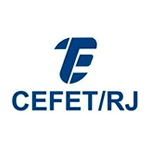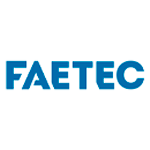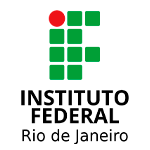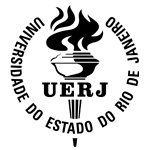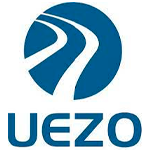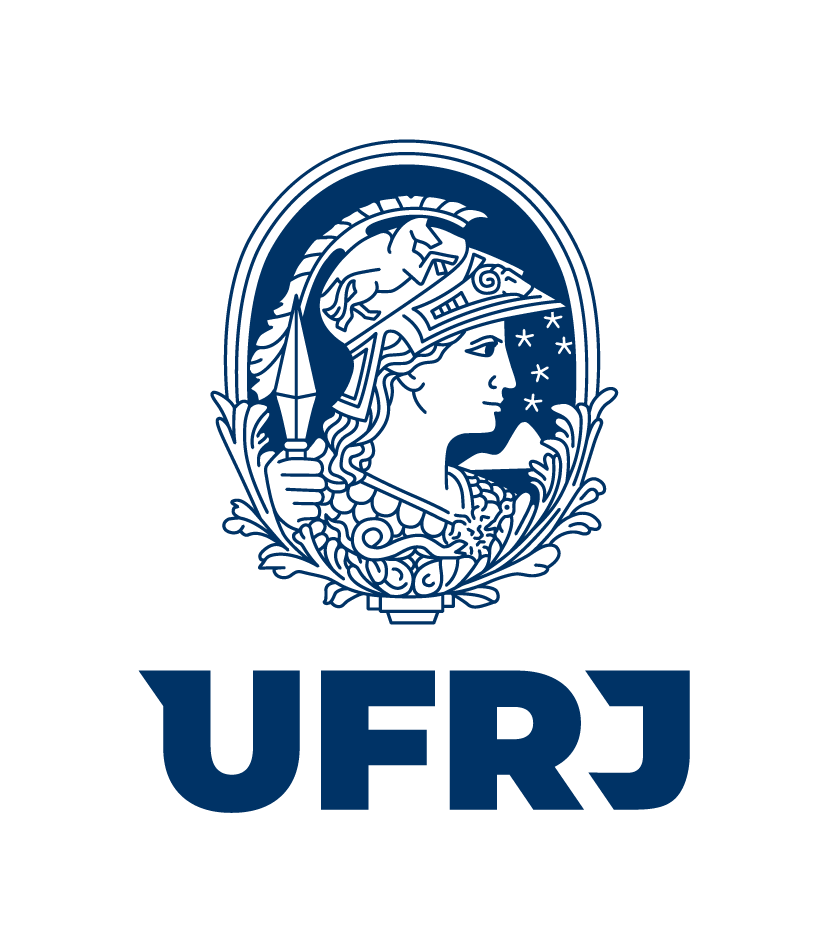Acesso de Professores a uma Comunidade Virtual Brasileira ao Longo do Tempo: Por que Eles Não Voltam
DOI:
https://doi.org/10.18264/eadf.v9i1.804Resumo
Uma comunidade virtual de aprendizagem, criada em associação com cursos oferecidos dentro de um programa online de desenvolvimento profissional para professores de Biologia, foi analisada durante um período de dois anos. Essa comunidade virtual de aprendizagem foi desenvolvida para ser moderada e gerenciada exclusivamente pelos próprios professores, sem nenhum tipo de direcionamento. Os resultados mostraram um padrão recorrente de adesão, expresso por um grande número de visualizações de páginas e mensagens, por curtos períodos de tempo durante os cursos, seguido por uma queda acentuada dessas visualizações após o encerramento dos cursos. Esse padrão não estava relacionado ao assunto ou duração dos cursos. Os questionários revelaram que os professores que acessaram ou não a comunidade após o término de seus cursos eram indistinguíveis em relação a seus perfis demográficos ou habilidades digitais. A análise das respostas dos professores ao questionário mostrou que a falta de tempo devido à sobrecarga de trabalho foi a principal razão pela qual os professores abandonaram a comunidade virtual de aprendizagem, independentemente das avaliações altamente positivas dos usuários. As implicações dos resultados para a futura implementação de comunidades virtuais de aprendizagem em países em desenvolvimento são discutidas.
Downloads
Referências
ALLAN, B.; LEWIS, D. The impact of membership of a virtual learning community on individual learning careers and professional identity. British Journal of Educational Technology, v. 37, n. 6, p. 841?852, 2006. doi: 10.1111/j.1467-8535.2006.00661.x
BALLET, K.; KELCHTERMANS, G. Struggling with workload: Primary teachers experience of intensification. Teaching and Teacher Education, v. 25, n. 8, p. 1150?1157, 2009. doi: 10.1016/j.tate.2009.02.012
BORGES, K. S.; NICHELE, A. G.; MENEZES, C. S. Formação Continuada de Professores Através de Comunidades de Prática: um Estudo de Caso. Revista Brasileira de Informática Na Educação, v. 24, n. 2, p. 13, 2016. doi: 10.5753/rbie.2016.24.02.13
BOYD, D. M.; ELLISON, N. B. Social Network Sites: Definition, History, and Scholarship. Journal of Computer-Mediated Communication, v. 13, n. 1, p. 210?230, 2008. doi: 10.1111/j.1083-6101.2007.00393.x
BRANSFORD, J. D.; BROWN, A. L.; COCKING, R. R. How People Learn: Brain, Mind, Experience, and School (Expanded E., p. 384). Washington, D.C.: National research Council, 2000.
BRAZIL. Orientações Curriculares para o Ensino Médio: Ciências da Natureza, matemática e suas tecnologias (Vol. 2, p. 140). Brasília, DF: Secretária de Educação Média e Tecnológica/MEC, ISBN 85-98171-43-3. 2006.
BROWN, C. A.; NEAL, R. E. W. Definition and History of Online Professional Development. In J. KEENGWE; L. KYEI-BLANKSON (Eds.), Virtual Mentoring for Teachers: Online Professional Development Practices (pp. 182?184). IGI-Global. 2013. doi: 10.4018/978-1-4666-1963-0.ch010
CONAE. Construindo o Sistema Nacional Articulado de Educação: o Plano Nacional de Educação, diretrizes e estratégias; documento Final. Brasília: INEP. Brasília, DF. 2010.
DARLING-HAMMOND, L.; BRANSFORD, J. (EDS.). Preparing teachers for a changing world: What teachers should learn and be able to do (p.583). San Francisco, CA: Jossey-Bass Inc, 2005.
DEDE, C. et al. A Research Agenda for Online Teacher Professional Development. Journal of Teacher Education, v. 60, n. 1, p. 8?19, 2008. doi: 10.1177/0022487108327554
DUNLAP, J. C.; LOWENTHAL, P. R. Tweeting the night away: Using Twitter to enhance social presence. Journal of Information Systems Education, v. 20, n. 2, p. 129-136, 2009.
EL-HANI, C.; GRECA, I. ComPratica: A Virtual Community of Practice for Promoting Biology Teachers Professional Development in Brazil. Research in Science Education, v. 43, p. 1327?1359, 2013. doi: 10.1007/s11165-012-9306-1
FRAENKEL, J.; WALLEN, N. How to design and evaluate research in education (7th ed.). New York: McGraw-Hill, 2008.
GLASSMAN, M.; KANG, M. J. Intelligence in the internet age: The emergence and evolution of Open Source Intelligence (OSINT). Computers in Human Behavior, v. 28, n. 2, p. 673?682, 2012. doi: 10.1016/j.chb.2011.11.014
HUTCHISON, A.; COLWELL, J. Using a wiki to facilitate an online professional learning community for induction and mentoring teachers. Education and Information Technologies, v. 17, n. 3, p. 273?289, 2011. doi: 10.1007/s10639-011-9159-7
KAO, C.-P.; TSAI, C.-C. Teachers attitudes toward web-based professional development, with relation to Internet self-efficacy and beliefs about web-based learning. Computers & Education, v. 53, n. 1, p. 66?73, 2009. doi: 10.1016/j.compedu.2008.12.019
KAO, C.-P.; WU, Y.-T.; TSAI, C.-C. Elementary school teachers motivation toward web-based professional development, and the relationship with Internet self-efficacy and belief about web-based learning. Teaching and Teacher Education, v. 27, n. 2, p. 406?415, 2011. doi: 10.1016/j.tate.2010.09.010
KLING, R.; COURTRIGHT, C. Group Behavior and Learning in Electronic Forums: A Sociotechnical Approach. The Information Society, v. 19, n. 3, p. 221?235, 2003. doi: 10.1080/01972240390210055
LIN, X. et al. A social network analysis of teaching and research collaboration in a teachers virtual learning community. British Journal of Educational Technology, v. 47, n. 2, p. 302?319, 2014. doi: 10.1111/bjet.12234
LUZ, M. R. M. P. et al. Characterization of the Reasons Why Brazilian Science Teachers Drop Out of Online Professional Development Courses. International Review of Research in Open and Distributed Learning, v. 19, n. 5, p. 145?164, 2018. doi: 10.19173/irrodl.v19i5.3642
MACIA, M.; GARCIA, I. Informal online communities and networks as a source of teacher professional development: A review. Teaching and Teacher Education, v. 55, n. 3, p. 291-307, 2016. doi: 10.1016/j.tate.2016.01.021
MARTINOVIC, D.; ZHANG, Z. Situating ICT in the teacher education program: Overcoming challenges, fulfilling expectations. Teaching and Teacher Education, v. 28, n. 3, p. 461?469, 2012. doi: 10.1016/j.tate.2011.12.001
MARTINS, N. H. S. P. et al Interações Entre Professores e Licenciandos de Ciências Biológicas. In X Encontro Nacional de Pesquisa em Educação em Ciências (pp. 1?8). íguas de Lindóia, SP, 2015. Acessado em 15/04/2016. Disponível em http://www.xenpec.com.br/anais2015/lista_area_18.htm
MATZAT, U. Do blended virtual learning communities enhance teachers professional development more than purely virtual ones? A large scale empirical comparison. Computers & Education, v. 60, n. 1, p. 40?51, 2013. doi: 10.1016/j.compedu.2012.08.006
NATIONAL RESEARCH COUNCIL. Enhancing Professional Development for Teachers: Potential Uses of Information Technology, Report of a Workshop. Washington, D.C: The National Academic Press, 2007.
OECD. PISA 2009 Results: What Students Know and Can Do: Student Performance in Reading, Mathematics and Science (Volume I) (Vol. I). Paris, France: OECD Publishing, 2010. doi: 10.1787/9789264091450-en
OZKAN, B.; MCKENZIE, B. Social Networking Tools for Teacher Education. In Society for Information Technology & Teacher Education International Conference (Vol. 2008, pp. 2772?2776), 2008. Acessado em 05/10/2012. Disponível em http://www.editlib.org/p/27640/
PARK, J.; CHOI, H. Factors influencing adult learners decision to drop out or persist in online learning. Educational Technology & Society, v. 12, n. 4, p. 207?217, 2009. Acessado em 21/07/2014. Disponível em http://www.ifets.info/others/download_pdf.php?j_id=45&a_id=995
PARK, J. et al. Colleagues roles in the professional development of teachers: Results from a research study of National Board certification. Teaching and Teacher Education, v. 23, n. 4, p. 368?389, 2007. doi: 10.1016/j.tate.2006.12.013
ROLANDO, L. G. R.; SALVADOR, D. F.; LUZ, M. R. M. P. The use of internet tools for teaching and learning by in-service biology teachers: A survey in Brazil. Teaching and Teacher Education, v. 34, p. 46?55, 2013. doi: 10.1016/j.tate.2013.03.007
ROLANDO, L. G. R. et al Learning with their peers: Using a virtual learning community to improve an in-service Biology teacher education program in Brazil. Teaching and Teacher Education, v. 44, p. 44?55, 2014. doi: 10.1016/j.tate.2014.07.010
SALVADOR, D. F. et al. Um panorama da formação continuada de professores de Biologia e ciências através da ead no estado do rio de Janeiro. EAD Em Foco, v.1, p. 59?68, 2010. doi: 10.18264/eadf.v1i1.19
Salvador, D. F. et al. Comunidade virtual aprendizagem para professores de Biologia: avaliação da utilização e desafios. Revista Electrónica de Investigación En Educación En Ciencias, v. 12, n. 1, p. 12?22, 2017. Acessado em 12/03/2018. Disponível em http://www.scielo.org.ar/scielo.php?script=sci_arttext&pid=S1850-66662017000100002
SHULMAN, L. S. Knowledge and Teaching: Foundations of New Reform. Harvard Educational Review, v. 57, n. 1, p. 01?21, 1987.
TSIOTAKIS, P.; JIMOYIANNIS, A. Critical factors towards analysing teachers presence in on-line learning communities. Internet and Higher Education, v. 28, p. 45?58, 2016. doi: 10.1016/j.iheduc.2015.09.002
UNESCO. ICT competency standards for teachers. United Kingdom, 2008.
UNESCO. Unesco ICT competency framework for teachers. Paris, France, 2011.
WANG, Q.; LU, Z. A case study of using an online community of practice for teachers professional development at a secondary school in China. Learning, Media and Technology, v. 37, n. 4, p. 429?446, 2012. doi: 10.1080/17439884.2012.685077
WILSON, A. Effective professional development for e-learning: What do the managers think? British Journal of Educational Technology, v. 43, n. 6, p. 892?900, 2012. doi: 10.1111/j.1467-8535.2011.01248.x
YANG, S. J. H. et al. Enhancing the Quality of e-Learning in Virtual Learning Communities by Finding Quality Learning Content and Trustworthy Collaborators. Educational Technology & Society, v. 10, n. 2, p. 84?95, 2007. Acessado em 18/07/2013. Disponível em https://www.j-ets.net/ETS/journals/10_2/8.pdf
ZHANG, S. et al. Interactive networks and social knowledge construction behavioral patterns in primary school teachers online collaborative learning activities. Computers & Education, v. 104, p. 1?17, 2017. doi: 10.1016/j.compedu.2016.10.011
Downloads
Publicado
Como Citar
Edição
Seção
Licença
Todos os artigos publicados na Revista EaD em Foco recebem a licença Creative Commons - Atribuição 4.0 Internacional (CC BY 4.0). Todas as publicações subsequentes, completas ou parciais, deverão ser feitas com o reconhecimento, nas citações, da Revista EaD em Foco como a editora original do artigo.


